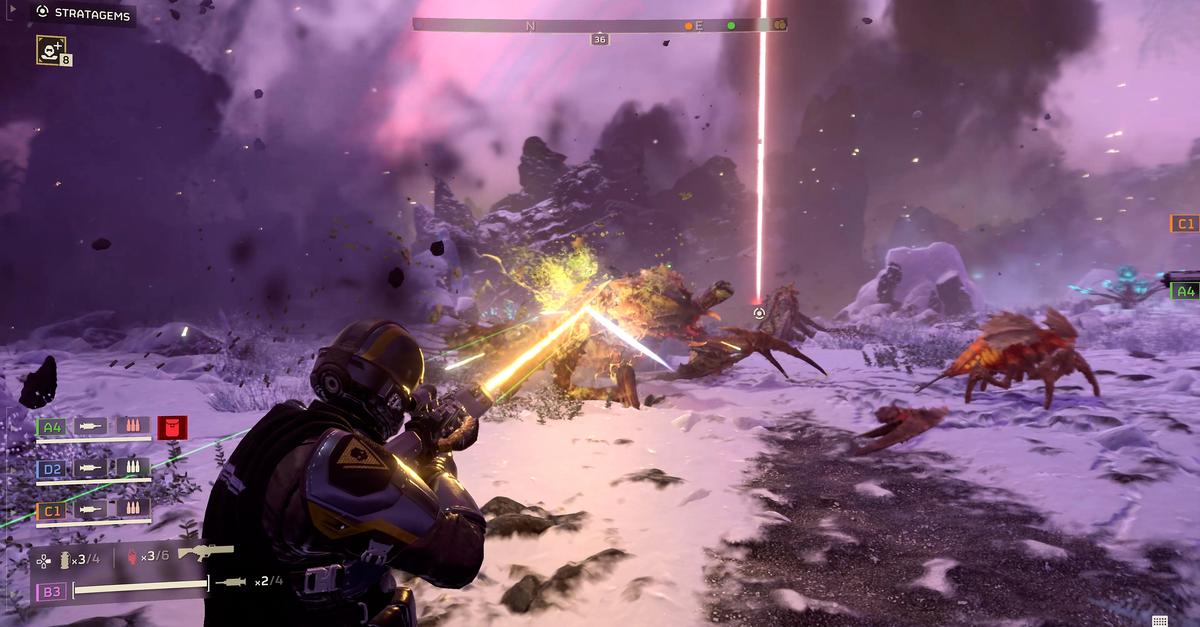Call of Duty: Black Ops 7 Returns Strong but Faces Major Backlash Over Campaign Issues
Call of Duty has returned once again, and this year’s release enters a far more competitive landscape than usual. Despite the franchise’s long-standing dominance in the shooter genre, Black Ops 7 arrives at a time when rival Battlefield 6 has been pulling significant attention and raising questions about whether Call of Duty can maintain its cultural stronghold. With more than 500 million copies sold since 2003 and a movie adaptation on the way, the series remains a giant in gaming, but its latest entry faces both new expectations and vocal criticism.
One of the biggest challenges stems from the series’ ongoing identity debate. Long-time fans have accused Activision of drifting too close to Fortnite-style content, especially following the backlash over operator skins modeled after the cartoon characters Beavis and Butthead. While brand collaborations have always been a part of Call of Duty, the community’s response forced Activision to acknowledge concerns that the franchise has been moving away from its military roots.
Black Ops 7’s developers, however, are eager to refocus attention on the strengths the franchise is known for, especially its high-budget single-player storytelling. Lead producer Natalie Pohorski and senior comms director Stephanie Snowdon emphasize the game’s narrative ambitions, noting that Black Ops stories allow them to explore conspiracies, distrust, and psychological tension in ways other franchises cannot. Set in 2035, the campaign continues the story of Black Ops 2 and centers around a global terrorist threat intertwined with a powerful tech corporation.
The game also brings in high-profile acting talent, including Kiernan Shipka and Milo Ventimiglia. Shipka described joining the project as an exciting opportunity and acknowledged the intensity of the franchise’s fan expectations, while Ventimiglia expressed hope that long-time players would appreciate the new story’s bolder direction. Despite confidence in the campaign’s cinematic elements, the real test for Black Ops 7 will be its multiplayer modes, which have historically defined the series’ longevity.
While reviewers and early players have responded positively to multiplayer, the campaign has been met with far harsher criticism. Many have called it confusing, disjointed, and one of the weakest story experiences in the franchise. A major point of frustration is the complete inability to pause the campaign, even when playing solo. Because the entire mode runs on dedicated servers to support co-op play and cross-progression, stopping the action is impossible, just as in multiplayer.
This design choice has created further complications for players who rely on breakpoints or need to step away mid-mission. There are checkpoints if a mission fails, but none if a player quits or disconnects, forcing complete restarts of sometimes lengthy missions. Additionally, players can be kicked for inactivity during solo play, leading to even more frustration. Activision acknowledged these issues but explained that the online nature of the campaign makes traditional pause features incompatible with the game’s architecture.
Critics argue that other online games have solved similar problems more elegantly. Titles like Dark Souls lack a pause button but still reload exactly where players left off. Fans believe Black Ops 7’s campaign could have maintained server-based progression while still offering a smoother single-player experience. Suggestions include allowing different rules for solo play, adding proper mid-mission saves, or implementing AFK protection instead of automatic kicks.
Even with these technical frustrations fixed, many reviewers maintain that the campaign suffers from larger problems tied to story coherence and pacing. Some missions feature creative ideas and engaging boss fights, but the overall narrative has been described as chaotic and lacking the grounded intrigue that defined earlier Black Ops entries. As a result, many longtime fans feel the campaign fails to deliver on the expectations associated with the brand.
Despite the controversy surrounding its single-player mode, Black Ops 7’s multiplayer remains the primary draw for most players. Featuring fast-paced gunplay, progression systems, and the franchise’s signature variety of modes, multiplayer performance will ultimately determine the game’s success. Activision remains confident, stating that its goal is simply to make Black Ops 7 the best it can be rather than focusing on competition with Battlefield.
As the debate continues, Call of Duty finds itself at a crossroads. The franchise’s future direction will likely depend on how players respond in the coming months and whether Activision chooses to pivot back toward classic design philosophies or continue exploring new online-focused approaches. For now, Black Ops 7 stands as one of the most divisive entries in the series, combining strong multiplayer foundations with a controversial campaign that has sparked intense conversation across the community.









Comments (0)